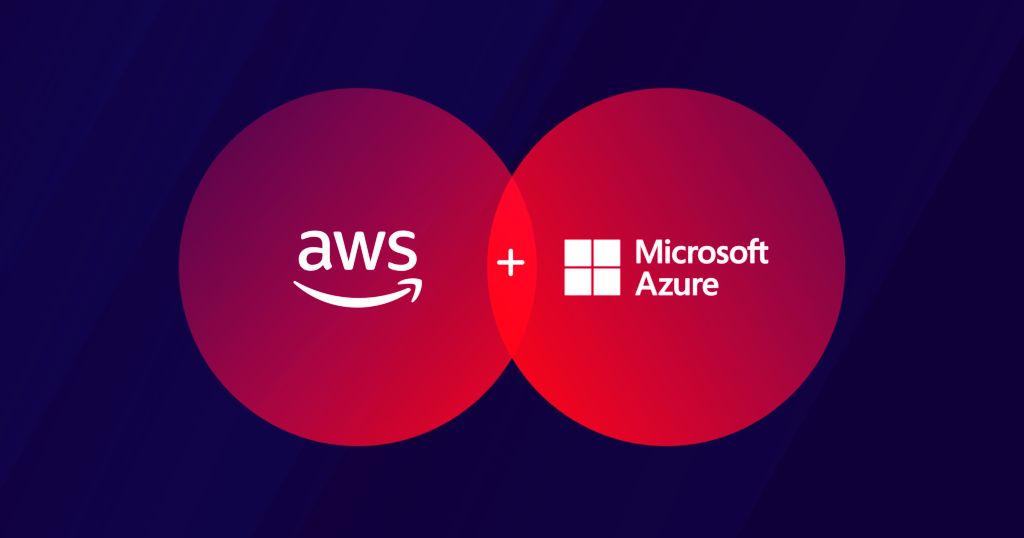AWS vs Microsoft Azure: In the ever-evolving landscape of cloud computing, two giants stand out: Amazon Web Services (AWS) and Microsoft Azure. Both platforms offer a broad and deep set of capabilities with global coverage, but they cater to different needs and preferences.

AWS vs Microsoft Azure
Amazon Web Services (AWS) is renowned for its extensive infrastructure-as-a-service (IaaS) offerings and diverse toolkit. With over 200 services globally, AWS is favored by startups, large corporations, and government agencies for its versatility in computing, storage, databases, machine learning, and data analytics. This makes AWS a powerhouse for those looking to migrate applications to the cloud or develop new solutions, enhancing flexibility and scalability.
Microsoft Azure, on the other hand, excels with its powerful platform-as-a-service (PaaS) and seamless integration with the Windows ecosystem. Azure’s heavy investment in security and research, along with the most extensive compliance offerings in the cloud service market, makes it a robust platform for businesses to scale up. For organizations already using Microsoft products, Azure offers a reliable and cohesive cloud experience.
When deciding between AWS and Azure, consider the following:
- Service Range: AWS has a broader range of services, while Azure provides better PaaS capabilities.
- Integration: Azure integrates seamlessly with Microsoft’s tools and services, making it ideal for those already in the Microsoft ecosystem.
- Market Presence: AWS has a larger market share and extensive experience, serving over a million customers.
Ultimately, the choice between AWS and Azure is more of a strategic business decision than a technological one. Both platforms are near equals in compute power, scalability, and security. Your decision should align with your company’s needs, existing infrastructure, and long-term growth plans.
For a detailed comparison of services and features, you can refer to resources like the Azure Architecture Center or Educative’s blog on the subject. Remember, the best cloud service for you will depend on your specific requirements and goals.

